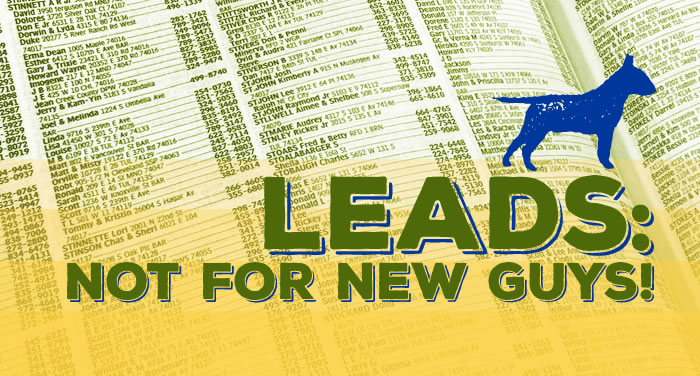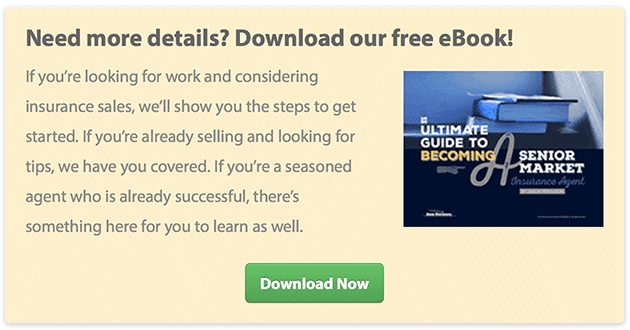This may seem obvious, but when you become an insurance agent, prospects aren’t just going to start calling and tracking you down to buy a policy from you. As with any business, you must prospect for leads. How you do this is up to you, but no matter which methods you choose, you must be persistent and consistent. Set goals for how many people you’re going to contact per day, and do it.
You can never stop prospecting. After a few years, you might slow down a little, but you’ll need to stick to it. Here are some methods to consider.
What is a lead?
While many agents use the terms interchangeably, it’s worth explaining the difference between a lead and a prospect. A prospect is a person who has not shown any indication that they are interested in what you’re selling. In many cases they aren’t even aware that you exist. A lead on the other hand is someone who is interested, at least enough to learn more.
There are dozens, if not hundreds, of lead vendors willing to sell you lists of people who have completed forms asking for information. We do not recommend that new agents buy leads. Why? Because when you're new you don’t have the experience to close them yet, and quality leads are expensive. So if you blow your budget on leads, and only close 1 out 25, that’s money wasted.
We do not recommend that new agents buy leads.
Vendors have a few types of leads, including shared leads, exclusive leads, and live-transfer leads.
A shared lead is one that a vendor sells to several different agents. Most vendors have a limit to how many times the lead is sold - it could be 3 times, 5 times, maybe far more. You can imagine how frustrated the people might get when several different agents are calling them.
An exclusive lead is sold exclusively to one agent, and is therefore far more expensive. These can start around $10 per lead and climb steadily from there.
Live transfer leads are when an agent has an agreement with a call center. The call center does the prospecting and when they get someone on the phone who is interested, they transfer the call over to you immediately. These are very expensive, but agents do get “hot leads” this way.
If you're an experienced agent and you do want to buy leads, check out The 4 Signs Of A Major League Lead Vendor.
What's the alternative?
If we don’t recommend that new agents buy leads, what do we recommend? Most of these vendors also offer inexpensive prospecting lists. These are lists of people in your chosen area who meet certain criteria, such as having a 65th birthday in the next few months. These are referred to as “T65 lists” and can be a great way to prospect. You might also want to consider getting lists with different criteria, such as people aged 68-74, people with a household income over $100,000, people in specific zip codes, of certain ethnicities, or records that include phone numbers or email addresses.


![The Simple Question That Drove $9M+ in Annuity Sales [Case Study]](https://blog.newhorizonsmktg.com/hs-fs/hubfs/NH-The-Simple-Question-That-Drove-9M-in-Annuity-Sales-Case%20Study%20(1).webp?width=220&height=119&name=NH-The-Simple-Question-That-Drove-9M-in-Annuity-Sales-Case%20Study%20(1).webp)


